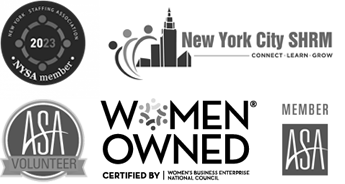You want to groom future leaders from inside of your organization, but it’s not as simple as just promoting someone with potential. Even if you find employees with the right skill set needed to become a business leader, they must also possess the correct attitude toward advancing and have knowledge about your culture. Here are a few ways you can begin identifying these future leaders in your organization.
Look for problem-solving skills
You might notice the ability to lead in several of your employees, but it’s important to make sure they can do more than make suggestions. A good way to test both problem-solving skills and their understanding of your organization is to allow team members to identify problems within the company and give them the opportunity to solve them.
With this, you can evaluate their ability to recognize issues and solve them in a manner that’s consistent with your company’s culture and methods. Plus, you can determine if they have the follow-through necessary to make a difference as a leader. If they succeed, it might be a promising sign of a future leader.
Keep your top employees engaged
Talk to your employees about their goals and see how they align with the needs of the organization and their plans to help. When you focus on your top performers and monitor their goals, you can decide whether or not they are company or self-focused.
While there’s nothing wrong with trying to advance your own career, you want a leader focused not only on improving themselves but bettering your organization. With goals that look to accomplish just that, you can assume they are dedicated to the company and worth the investment of your time and resources.
Check out their relationships with co-workers
This isn’t necessarily performance related, but how a person interacts with their co-workers on both a personal and professional level is a good indication of their leadership ability. For example, you want a leader who gets along with their co-workers but isn’t overly friendly, meaning the relationships don’t necessarily extend beyond the office. If someone is eventually going to lead, they need to do so without being compromised by their relationships.
In some cases, co-worker relationships turn toxic and become exclusive and malicious. You want a leader who can avoid the office drama and gossip and stay out of the negative cliques that may form within a business.
Find new leaders with Gainor Staffing
Our highly specialized recruiters are prepared and available to address your specific staffing needs.





